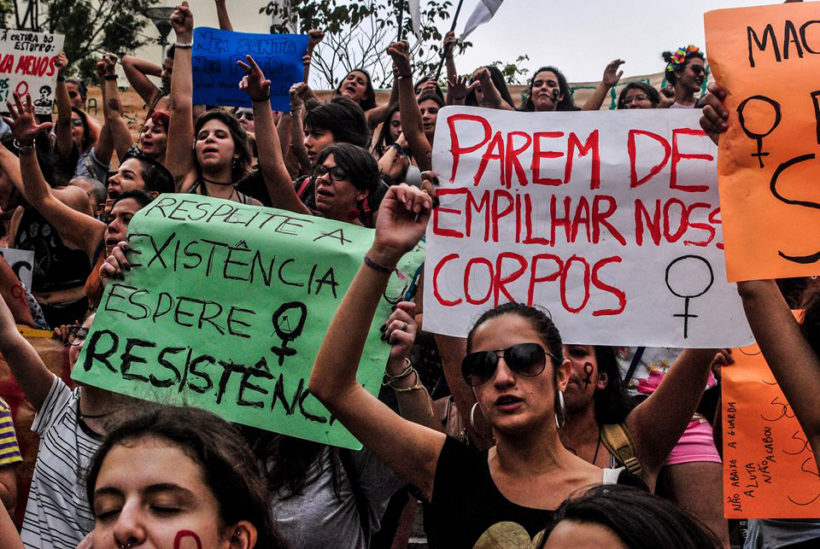Although not surprising, the violence perpetrated by magistrate Joana Ribeiro Zimmer, who denied the right to an abortion to an 11-year-old rape victim, is astonishing, demonstrating the perversity of the current government’s agenda of customs. In the same week, prosecutor Gabriela Barros was brutally beaten by her colleague Demétrius Macedo, revealing the urgency of stopping the misogyny that reigns as never before in Brazil.
This “head of state” has often shown his contempt for women, having even, in 2017, called his only daughter the fruit of a “weakness”. These attitudes, of course, reverberate and take shape in his followers and end up empowering and amplifying violent behaviour directed at women.
The current head of the national government’s contempt for women is nothing new. Already in the campaign for the Presidency of the Republic he made his position on gender issues clear. Asked about wage inequalities between men and women, for example, the then candidate responded that the issue should be brought before the courts on a case-by-case basis.
In 2019, despite all the campaigns and efforts of countless individuals and entities that have historically sought to combat sex tourism in Brazil, the President of the Republic himself stated that “anyone who wants to come here and have sex with a beautiful woman, feel free”.
In 2021, the current head of the Federal Executive stated that the approval of a bill to increase the fine for companies that discriminate against women would make it almost impossible for them to enter the labour market. Discrimination against women by the President of the Republic does not stop there. In the same year he vetoed a very important law that provided for the free distribution of sanitary towels to vulnerable adolescent girls, as a way to prevent many from dropping out of school because they could not afford this personal hygiene item.
Discrimination is also part of the behaviour of “presidential staff”. In 2018, General Hamilton Mourão, Vice-President of the Republic, said that children raised without father figures are easily seduced by organised crime. And to “put the icing on the cake”, the military officer emphasised that he was not discriminating or criticising women, but rather that he was “noting something that happens in an obvious way in our poor communities”.
As we can see, Mourão not only criticised and discriminated against women, but he did so in relation to women from poor communities and children of the same origin. In addition to being sexist, he also proved to be classist and racist, given that the majority of women living in deprived communities in our country are black.
As if that were not enough, the current government had as head of the Ministry of Women, Family and Human Rights until last March, Damares Alves, who in September 2020 stated that a girl raped by her uncle from the age of 6 to 10 should have continued the pregnancy, because “what was in that girl’s womb was a baby almost six months old”.
Given these facts (and many others not mentioned), we can say that the conduct of Judge Joana Zimmer and the prosecutor Demétrius Macedo does not “surprise” us, since both public officials have practical examples of contempt for women, on the part of the Head of State himself and his staff. Because violence, in its most varied facets, has become the identity of the current Brazilian government. Using Machiavelli as a metaphor, we can say that the current president’s followers act like soldiers who must “love the prince with a military spirit, insolent, cruel…”.
However, the fact that we are not “surprised” does not mean that these behaviours should be tolerated and accepted. Brazilian society as a whole must demand that the bodies in charge of monitoring the conduct of both officials hold both the magistrate and the prosecutor accountable in order to send a clear message that we will not stand idly by in the face of these forms of behaviour.
The trivialisation of violence in this country must end. We cannot let such examples become benchmarks for future generations. Otherwise, all the struggles undertaken so far will not have the effects so desired by those of us who defend human rights. It is necessary to institute zero tolerance for violence practised by individuals, institutions and the state itself.






